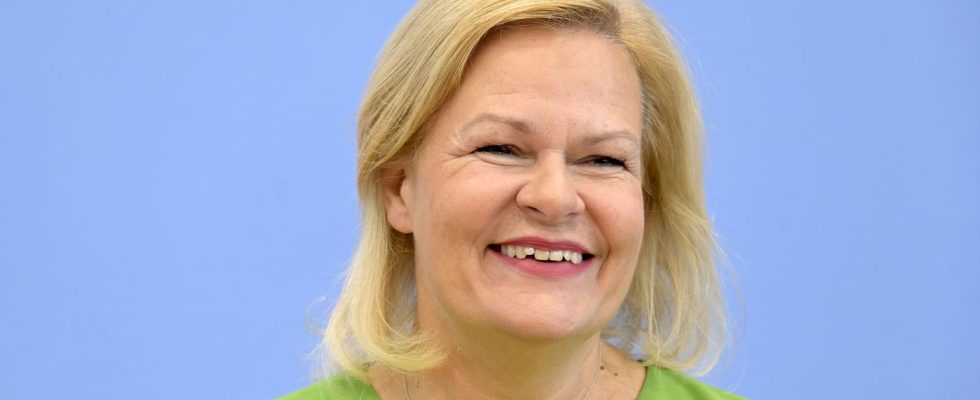For Nancy Faeser, the reform of citizenship law comes in handy. On October 8, the Federal Minister of the Interior wants to become Prime Minister of Hesse, and instead of speaking at the federal press conference about extremists or violence, as her office usually requires, the SPD politician can deal with the naturalization reform.
Accordingly, she was in a good mood at the performance. “The reform is a commitment to modern Germany,” she said, before adding: “finally.” For decades there has been a dispute in the Federal Republic about who is allowed to become a German and when.
Children and guest workers benefit
In Hesse, of all places, the then Prime Minister candidate Roland Koch (CDU) campaigned against the double pass. There were reports of people queuing to ask where they could sign “against foreigners”.
This Wednesday, the federal cabinet passed a draft law that relaxes the rules on naturalization. With special integration achievements, people can in future apply for citizenship after just three years. They no longer have to give up their original citizenship.
29,000
Proceedings for naturalization are only open in Berlin.
Children whose parents have lived in Germany for five instead of eight years at the time of their birth will automatically be German in the future. Because there were no integration offers for them, guest workers only have to prove that they can communicate in German and no longer have to take a naturalization test.
It’s about a commitment to Germany, said Faeser, people who live here should be allowed to help shape it. But the waiting time until naturalization is long, even if you meet all the requirements. In Berlin, the waiting time is currently up to two years.
According to the administration, more than 29,000 procedures in citizenship matters were pending in Berlin in the first quarter of this year. “That’s a problem,” said Faeser, referring to the responsibility of the federal states. They are in contact with each other, but Faeser did not make any concrete offers of support.
In Germany, 14 percent of the population does not have a German passport, more than twelve million people. According to the Ministry of the Interior, around 5.3 million of them have been living “in Germany for at least ten years”. With the introduction of the double pass, the traffic light coalition would like to make these people an offer to be able to have a democratic say in Germany in the future.
There will be no devaluation of German citizenship with the FDP.
Bijan Djir-Sarai, FDP General Secretary
Faeser said they also tightened regulations. In the future, only those who earn their own living and that of their family, i.e. who do not receive any social benefits, should be able to be naturalized. The criticized the anti-discrimination officer of the federal government, Ferda Ataman.
“People with disabilities, single parents and older people who receive subsistence benefits are often unable to meet the requirements for a secure livelihood,” she told the dpa news agency. The Greens Vice Group leader Konstantin von Notz made a similar statement. The reform was “partially unfair”.
During the negotiations on the reform of citizenship, the FDP in particular expressed concern that people could receive citizenship too quickly. “There will be no devaluation of German citizenship with the FDP,” emphasized General Secretary Bijan Djir-Sarai. However, Faeser reported from the cabinet that all traffic light partners had welcomed the project.
Faeser paid particular attention to the importance of the reform for guest workers who came to Germany in the 1960s. “We didn’t make any integration offers at all,” said Faeser, although these people had “built up the republic for decades”. The fact that they can now simply become Germans is a “thank you later”. She sounds more like a country mother and less like the Minister of the Interior.

